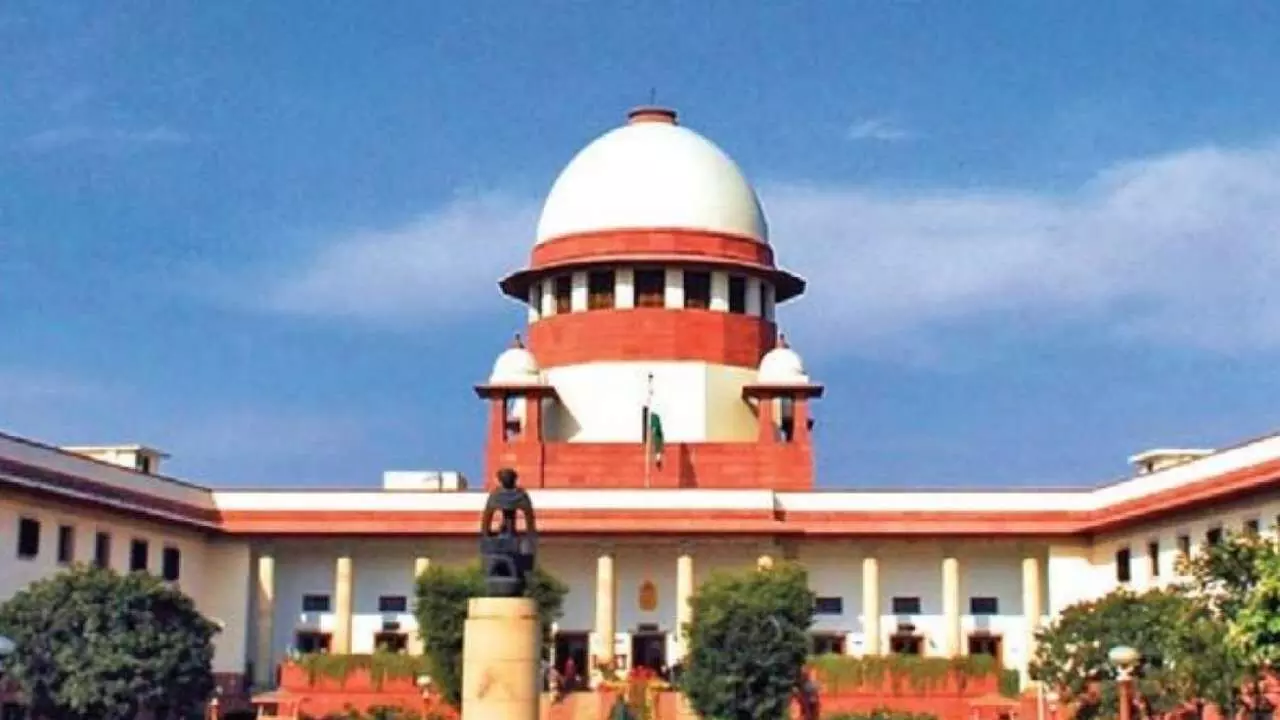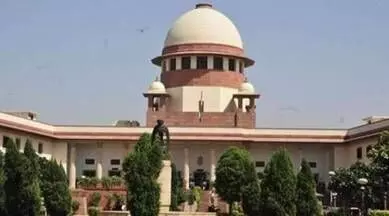
Centre's change of mind welcome; needs action with good reform too
text_fieldsThe resounding answer to the question for who law and administration of justice should be is that it is for is for the people. In practice, however, it often turns out to be in the interest of the state and the rulers. Governments or the political parties that steer them are least bothered by any contradiction or double standards in this matter. he day before, Prime Minister Narendra Modi had raised the issue of partial or complete withdrawal of the Armed Forces Special Powers Act (AFSPA) in the north-eastern states. In our editorial the other day, we pointed out its timely relevance. Despite being suppressed by the army under the boots of AFSPA, the Northeast and Jammu and Kashmir are not getting under control, but leaping out of the scope of national interests. It is in due recognition of this that earlier the Home Minister and now the Prime Minister himself are mooting the matter of revisiting AFSPA. India has a legislature and a judiciary to make new laws, amend and reform them. It is when the respective bodies of authority act in line with the sanctity of these mechanisms that a welfare-based governance in the country will become a reality. On the contrary, when vested political interests drive those in power, these systems will move as per their whims, regardless of their party or other differences. In such cases, it becomes necessary for governments, more than for the people, to protect, amend and reform the law.
For example, the government itself, which is preparing to reconsider the draconian law AFSPA, is caught in two minds regarding amending the sedition law which has already been the subject of a great deal of controversy and criticism. The Centre on Saturday informed the Supreme Court that no amendment was required, since the apex court has once ratified it, even if it is outdated. But with the nation-wide difference of opinion and criticisms that have been raised against it, the Centre on Monday reversed its stance and said it was ready to reconsider the law. The Centre has also requested the apex court to put the proceedings on hold pending the completion of the review and follow-up it has initiated. The sedition law is a piece of legislation brought in by the British government three quarters of a century ago to suppress the freedom struggle and to unjustly imprison freedom fighters; and the country is still maintaining the law with no change. Bal Gangadhar Tilak was the first victim of the law written by the British into the Indian Penal Code in 1870. After independence in 1948, during the constitution-drafting debate, architects of the nation were united that the very term 'sedition' should not find a place in the Constitution. And they added provisions for freedom of expression in the Constitution too. However, the provisions remained under Section 124A of the Indian Penal Code (IPC). In 1951, Jawaharlal Nehru introduced Article 19 (2) representing some restrictions on Article 19 (1) A which guaranteed freedom of expression. In 1974, Indira Gandhi tightened Section 124A giving police more powers to make arrests without a warrant.
Thus, even though Britain, which brought in the law to frame Indians, has trashed the crime of 'treason' in their country, India is still carrying the old colonial baggage. This has often been pointed out by different courts in various cases and they asked the government to consider repealing this anti-colonial law. In 1951, in the case of Tara Singh Gopi Chand, the Punjab High Court ruled that section 124A of IPC was unconstitutional. Ever since independence, the question has been constantly raised in the country why there should be any delay in abolishing this mockery of freedom of expression and the basic features of democracy - when there are other provisions in the Penal Code to deal with treason. It is a similar question that the Supreme Court raised when it took up four petitions that had been pending for more than a year. The Central Government responded to the court blindly justifying the law. The Centre argued that the Supreme Court had termed Section 124A good law in the 1962 case against Kedar Nath Singh of Bihar. In the process, the Centre was not concerned about other court rulings, which called for a review of the law and pointed out its shortcomings. But now the Centre has changed tack from that position - a policy shift that should be welcomed. We have to wait and see the government's follow-up moves.
The governments of independent India are still used to seeing any move against the ruling establishment through the monarchical lens of the British era. The media recently uncovered the brittleness of 14 cases charged in various states last year alone. There is no difference between the ruling BJP and the Congress in this matter. The apex court, therefore, sought views regarding referring the matter to a larger bench for review. The latest change of mind of the government proves that such an initiative by the Supreme Court of the country was not in vain, given constant criticism from citizens and civil rights activists and given the fact that innocents are regularly being rounded up and subjected to vengeful acts of the state bringing disrepute to the country. It remains to be seen whether the Centre's willingness to review and reform the law will be in conformity with to the Constitution and democratic order.





















